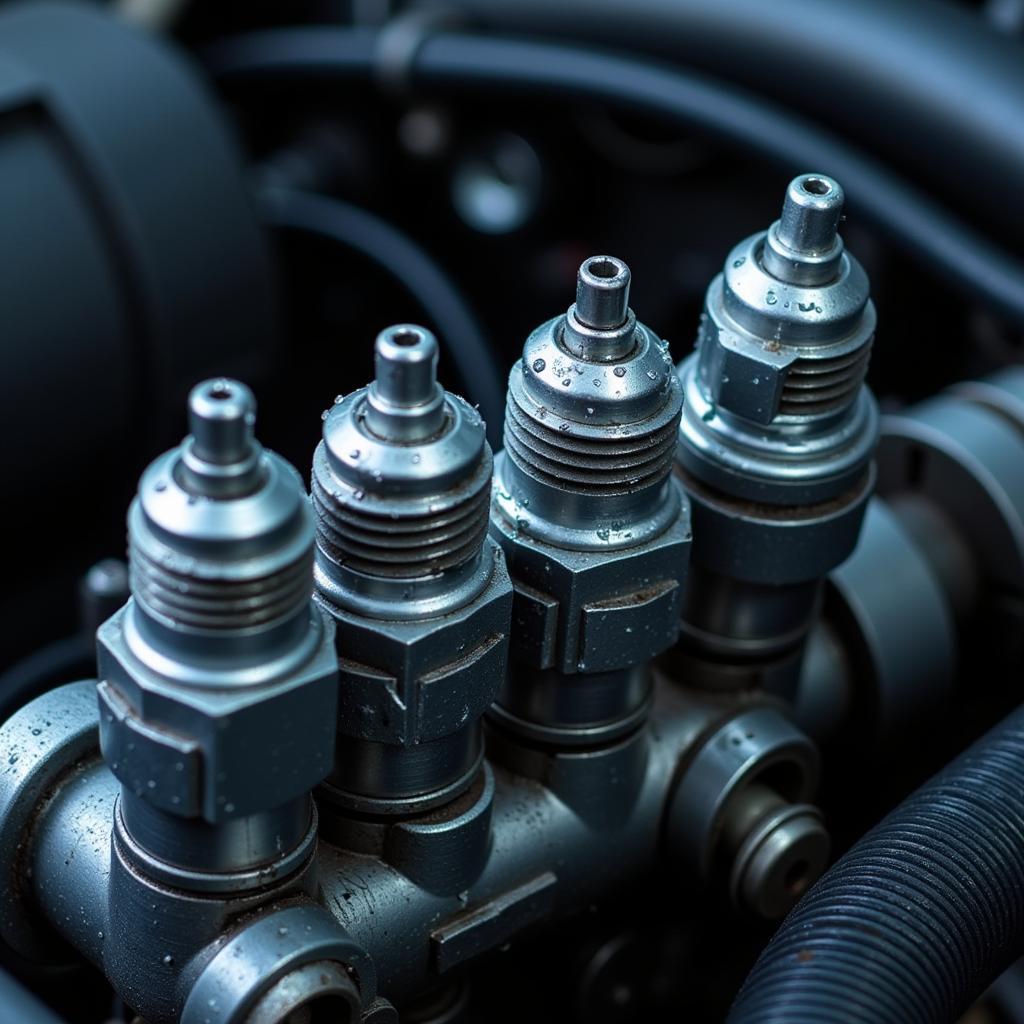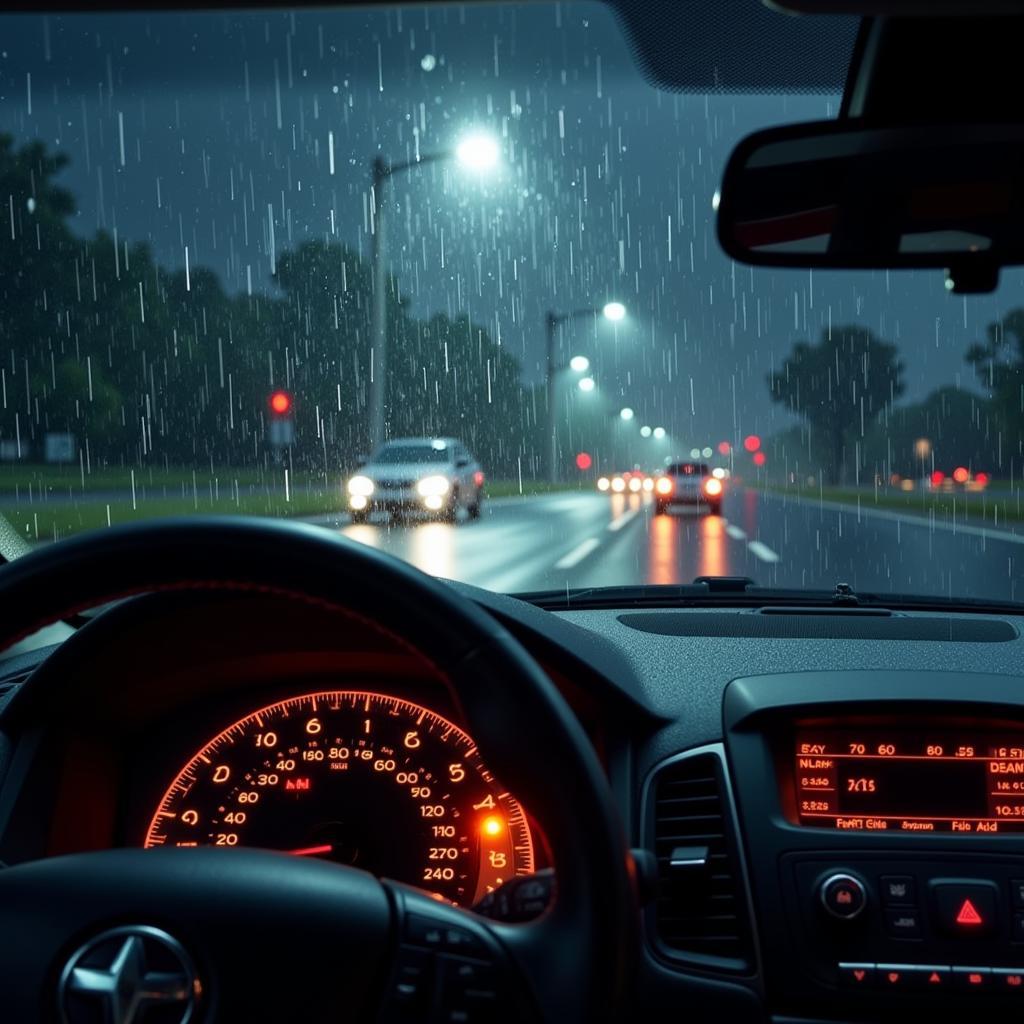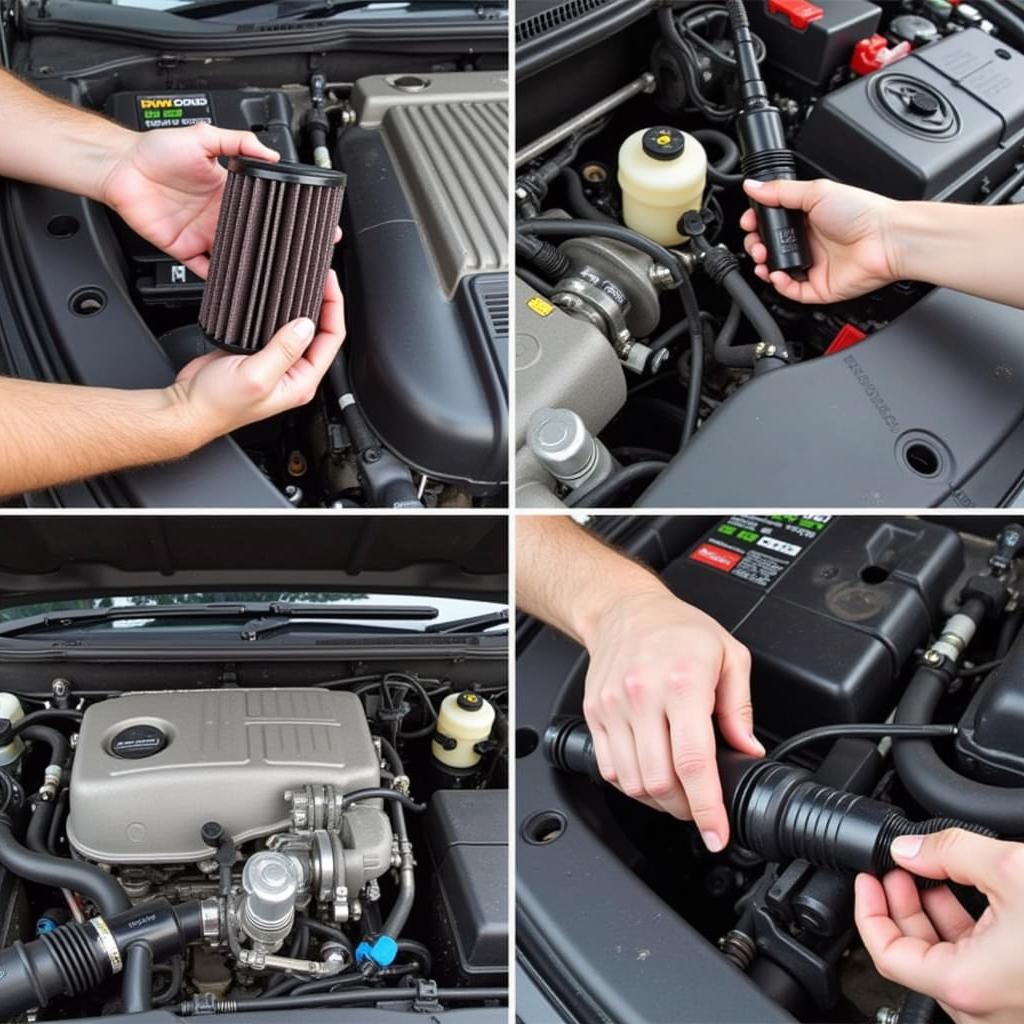Heavy Rain Car Acceleration Problems can be a frustrating and potentially dangerous experience. Whether it’s sputtering, hesitation, or a complete loss of power, understanding the causes and solutions can save you time, money, and stress. This article will delve into the common reasons why your car might struggle to accelerate in heavy rain, and offer practical advice on how to address these issues.
After driving through a particularly heavy downpour, you might notice some issues with your automatic transmission. More information on automatic transmissions can be found on this article: problems with automatic transmission cars in india. Let’s dive into the common causes of acceleration problems in heavy rain.
Why Does My Car Struggle to Accelerate in Heavy Rain?
Several factors contribute to heavy rain car acceleration problems. Water can interfere with various components of your vehicle’s engine and electrical systems, leading to performance issues.
Electrical System Issues
One of the most common culprits is moisture affecting the electrical system. Spark plugs, ignition coils, and other electrical connections can become damp, disrupting the spark needed for combustion. This can result in misfires, rough idling, and difficulty accelerating.
 Heavy Rain Car Electrical System Issues: Spark Plugs and Ignition Coils Affected by Moisture
Heavy Rain Car Electrical System Issues: Spark Plugs and Ignition Coils Affected by Moisture
Air Intake Problems
Heavy rain can also lead to water entering the air intake system. This can disrupt the air-fuel mixture, causing the engine to run rich or lean, which in turn affects acceleration. In extreme cases, excessive water intake can even cause hydrolock, a serious condition that can damage the engine.
Traction Control Interference
Modern vehicles often have traction control systems designed to prevent wheel spin. In wet conditions, these systems can sometimes become overly sensitive, interpreting the reduced traction as wheel slip and cutting engine power unnecessarily. This can feel like a lack of acceleration.
 Heavy Rain Car Traction Control Interference: Traction Control System Activated Due to Reduced Grip
Heavy Rain Car Traction Control Interference: Traction Control System Activated Due to Reduced Grip
Similar issues could even occur in a high-speed chase, where traction control systems could be activated. To read more about the physics of high speed chases, check out: police car and speeder physics problem.
## Troubleshooting Heavy Rain Acceleration Problems
If you experience heavy rain car acceleration problems, here are some steps to troubleshoot the issue:
- Check the air filter: A clogged or wet air filter can restrict airflow. Inspect the air filter and replace it if necessary.
- Inspect spark plugs and ignition coils: Look for signs of corrosion or moisture. If present, clean or replace these components.
- Examine the air intake system: Check for any blockages or leaks that could allow water to enter.
- Disable traction control (temporarily): If you suspect traction control is interfering, try disabling it temporarily to see if acceleration improves. However, exercise caution as this can reduce stability in wet conditions.
 Heavy Rain Car Troubleshooting Steps: Inspecting Air Filter, Spark Plugs, and Air Intake
Heavy Rain Car Troubleshooting Steps: Inspecting Air Filter, Spark Plugs, and Air Intake
Some cars, especially newer models, can have clutch issues that can be exacerbated by wet weather. For more information about clutch problems, you can refer to: brand new car clutch problems.
Preventing Future Issues
- Regular maintenance: Keeping your car well-maintained, including regular checks of the electrical system and air intake, can prevent many heavy rain acceleration problems.
- Hydrophobic sprays: Applying hydrophobic sprays to electrical connections can help repel water and prevent moisture-related issues.
“Regular maintenance is key,” advises John Smith, a veteran automotive technician with over 20 years of experience. “A simple check-up can save you from a lot of headaches down the road.” He also recommends using dielectric grease on electrical connections to further protect them from moisture.
Conclusion
Heavy rain car acceleration problems can be caused by a variety of factors, primarily related to the electrical system and air intake. By understanding these issues and following the troubleshooting steps outlined in this article, you can effectively address these problems and ensure safe driving in wet conditions. Don’t let heavy rain put a damper on your driving experience.
For Toyota owners experiencing clutch issues, you might find this resource helpful: car clutch problems toyota. Contact AutoTipPro at +1 (641) 206-8880 or visit our office at 500 N St Mary’s St, San Antonio, TX 78205, United States, for further assistance.
“Addressing these issues promptly is crucial,” adds Maria Garcia, a certified mechanic and automotive instructor. “Ignoring these problems can lead to more significant and costly repairs in the future.” So, don’t hesitate to seek professional help if needed.




Leave a Reply